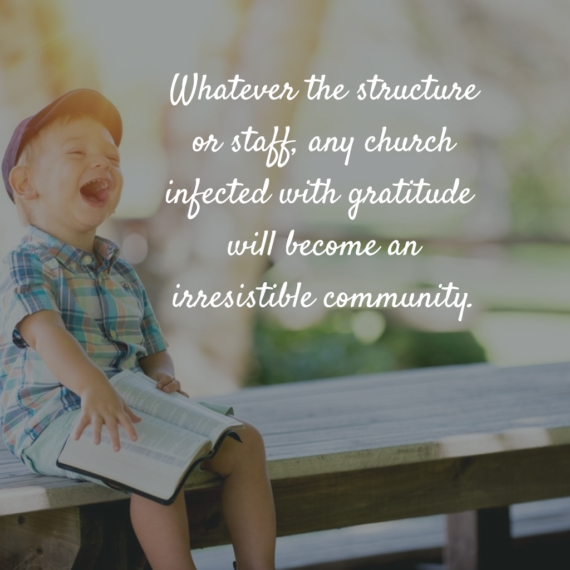Here are the first few paragraphs of the Introduction of my new resource: The Amazing Potential of One Surrendered Church.
WHAT CAN ONE CHURCH DO?
In many parts of the world there are so many churches that it would be easy to think that many of them, especially the average ones, are not that important—that we could lose a few hundred of them and not feel the difference.
The importance of one solitary church is often lost because its effects in the surrounding community, or around the world, are not investigated and recorded. We forget what God has done in the past, and don’t yet know what present efforts will produce in the future. And of course we give little thought to the intangible, immeasurable effects which a church can bring in the heavenly places. We wrongly think that all our victories are visible, earthly.
As church leaders, we find our energies demanded by daily operations of church life, making it difficult to see the larger impact of our small endeavors. Consequently our prayers and planning do not reflect the glory of what God is doing through us. We fail to see and celebrate the future potential of today’s obedience.
The solutions we often seek are new methodologies that have worked in another place and promise to work for us. But these may bring answers to questions we are not asking, solutions to problems we have not encountered.
All of these considerations point us back to simpler times when there were not so many voices giving us their advice, times which remind us that the unchanging Holy Spirit will still activate and use churches of all sorts, in varieties of ways.
Most churches need to be inspired by God’s view of their existence and their efforts. They long to be reminded that the Church is itself a miracle, and that it is wondrous because God designed it and inhabits it.
ANTIOCH
Because of attention given to rapidly growing churches today, declining or maintaining churches can easily feel inferior. Due to the emphasis on numerical growth, the small or medium-sized church can too easily think of itself as failing.
Then along comes a story of a church that presents a model that is different than those which many esteem today. We don’t have any attendance figures for this church. Their budget is a non-issue. As for their facility, they likely didn’t have one. But we can’t ignore this church because, despite its unimpressiveness by many of today’s standards, it proved to be one of the single most significant churches ever. Plus it’s in the Bible!
From the church at Antioch, we receive hope that any and every church has a chance at greatness beyond its own resources. By finding its role and playing it the way Antioch did, a church today can accomplish more in God’s harvest field than it ever dreamed possible. Here is why. Greatness for your church has little to do with buildings, budgets and attendance and more to do with responding obediently to each step God asks you to take. It is about playing the specific role God wants you to play in your community, one that is unique to you, different even from the church down the street. It is about knowing why your church is there in that particular place, at this specific time, and stepping out in faith in response to the opportunity you have and the guidance God gives to you.
Antioch sat in the shadow of Jerusalem, the mega-church with its thousands of attenders and famous leaders. It sprouted as a fragile upstart amidst the towering weeds of Antioch’s Roman paganism, not enjoying the religious climate of Jerusalem with its Temple and worship lifestyle. When it began, Antioch’s only claim to fame was the trouble it might cause. (No one had ever birthed a church among Gentiles. Was this even supposed to happen?)
It soon became evident that Antioch was definitely supposed to happen and, more than that, God was very much in favor of this small, upstart church.
Antioch shows that God is eager to use the offbeat church that may have a dubious beginning or a less-than-stellar history. In fact, the assembly at Antioch shows us how one church, led into a higher level of surrender, can attain a quiet greatness and expanding impact.
 From The Amazing Potential of One Surrendered Church, by Robert E Rasmussen (p.36)
From The Amazing Potential of One Surrendered Church, by Robert E Rasmussen (p.36)